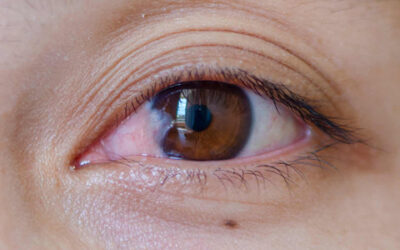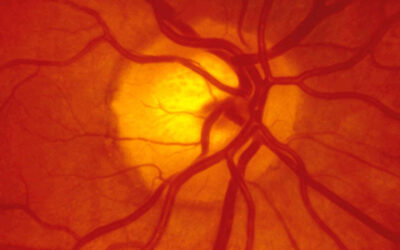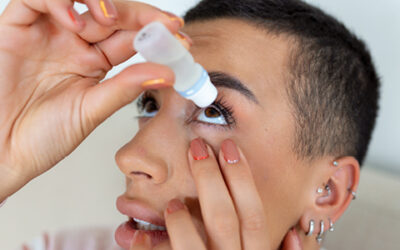Do I Need a Contact Lens Consultation?
Whether you’d like to try switching from glasses to contact lenses, are looking to renew your contacts, or would like to try contact lenses for the first time, a question that our clinics are often asked by clients is whether they need a regular contact lens consultation alongside their yearly comprehensive eye exam – and our resounding answer is, yes!
Additionally, you may have tried contact lenses in the past unsuccessfully. With new technology and materials, there is a lens for almost everybody. This includes new multifocal lenses.
Prescriptions for glasses and contact lenses are different. Contact lenses are complex and custom-fitted to your eyes and visual needs as well as lifestyle, which means that they require a consultation to ensure they are a perfect match for you.
As well as this, a regular contact lens consultation is essential in order to understand your prescription requirements, any changes that have taken place over time, and the effect of any underlying medical conditions you may have.
Even if you had an assessment, in the past, it’s important to have a review every 12 months, as our vision and eye health change over time, often without us realising.
We highly recommend that all of our clients undertake a regular contact lens consultation with our highly qualified optometrists, to ensure your contact lenses are right for your current needs. Let’s take a look at how a consultation can ensure you are as comfortable as possible, while maintaining your overall eye health.
What Should I Expect At A Customised Contact Lens Consultation?
A contact lens consultation with one of our experienced optometrists typically includes:
Comprehensive Eye Examination
Contact lenses are medical devices, so you need an eye examination as part of your contact lens consultation to determine the best prescription for your lenses, and to ensure your eyes are suitable for contact lenses.
A comprehensive eye exam will take place first, including health checks of the structures at the front and inside of the eyes, glaucoma checks and much more.
Depending on your eye health needs, your exam may include questions about:
- Lifestyle, personal and family health history, detailing when your any visual symptoms ,began, medications you’re taking, work and environmental factors, and more.
- Environments, work requirements , health factors and tear film quality change with time and need evaluation.
Lifestyle Preferences
There are a wide range of lenses available with today’s advancing technology, and some contact lens types may be better suited for athletes with active lifestyles, whereas others may be better for frequent travellers who might need to occasionally sleep while still wearing their contacts.
Our optometrists specialise in fitting contact lenses for both minor vision disturbances, as well as those with:
- Eye disease
- High refractive errors
- Dry eyes
- Misshapen corneas
- Outdoor or active lifestyles, and more
Tear Film Evaluation
If you tend to have dry eyes, your optometrist may also perform a tear film evaluation to make sure you’re prescribed lenses that keep your eyes moisturised.
Hygiene
During your appointment, we’ll guide you on how to use and care for your contact lenses hygienically to help support the health and comfort of your eyes.
Why Do Optometrists Recommend Regular Contact Lens Consultations?
Your Eyes May Have Undetected Underlying Issues
Even if you already have some vision loss that requires correcting with contact lenses, there may be other underlying medical issues at play that are now additionally contributing to your vision disturbances. Often, the early signs of problems with the eyes (like glaucoma or retinopathy) are very subtle, which is where your eye care professional’s knowledge and experience can have a significant effect on your eye health and your quality of life for the long-term. This is why if you need new glasses, you should also seek an in-person comprehensive eye examination with a registered optometrist, which are recommended every two years in Australia,[1] and every year if you’re over the age of 65, even if you have no concerning symptoms.
There are many other eye diseases that have few or no early symptoms and can develop at any age, however, a trusted team of experienced optometrists can use their comprehensive knowledge paired with digital tools to help track subtle changes in your eyes over time, detect any concerns as soon as they arise. This enables you to start your treatment and management plan as soon as possible, which may include fitting you with carefully prescribed corrective contact lenses to best improve your vision.
Contact Lenses Are Custom-Fitted For Your Individual Eyes
A few follow up appointments are necessary when a contact lens fitting takes place, to evaluate comfort, vision, fit, and the cornea’s adaptation to the lens.
Contact lenses can be replaced daily, bi-weekly or monthly. A discussion around personal needs, budget and health factors are all considered.
Prioritise Your Eyes Today With A Contact Lens Consultation From A Trusted Optometrist
To book your customised contact lens consultation with our trusted and friendly optometry team, contact one of our local clinics, or use your prescription to shop for your contact lenses online.
[1] https://www.visionaustralia.org/information/eye-health/eye-care





